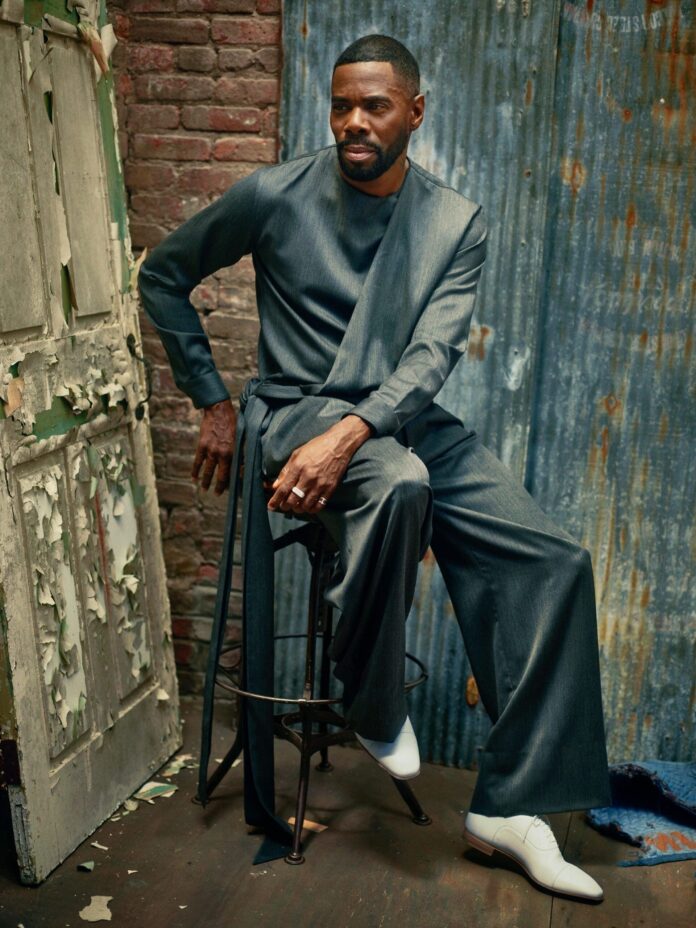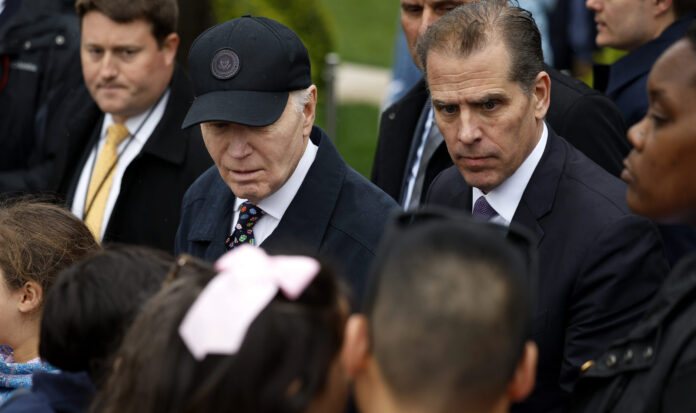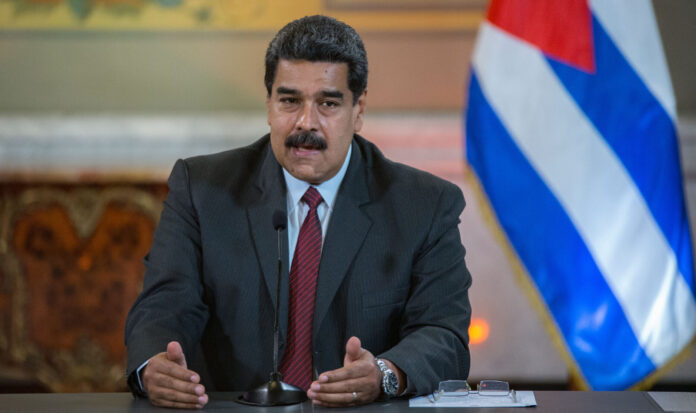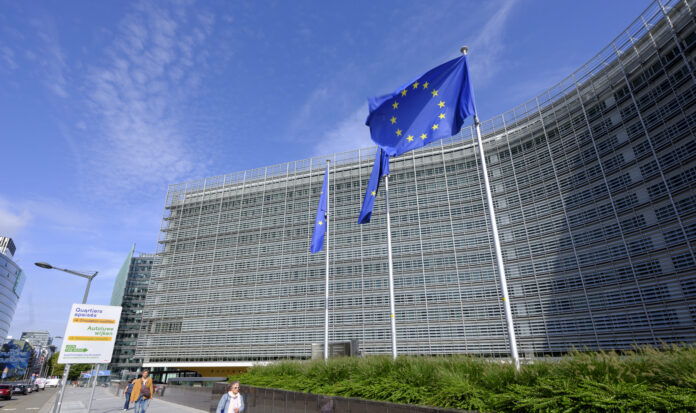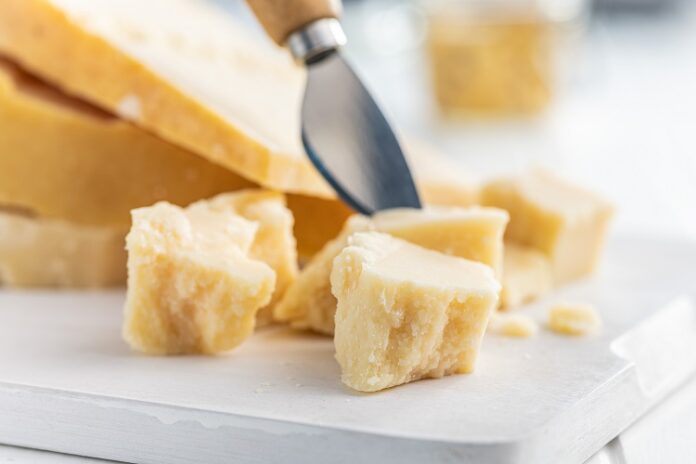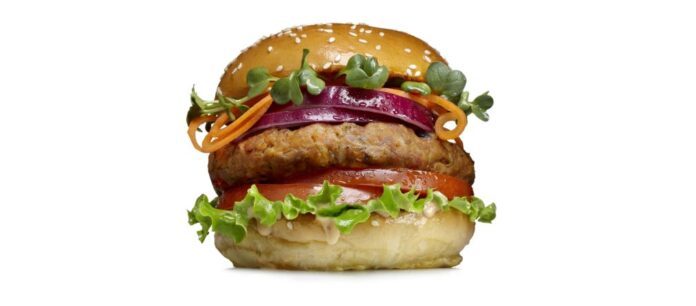Among Us (Free) has done loads of crossovers and collaborations over the years, but one I didn’t expect at all … Continue reading “‘Among Us’ Is Collaborating With ‘Ace Attorney Investigations’ for Its Newest Free Cosmetic DLC Out Next Week…
Read More
‘Among Us’ Is Collaborating With ‘Ace Attorney Investigations’ for Its Newest Free Cosmetic DLC Out Next Week
SwitchArcade Round-Up: Today’s Nintendo Direct, Full Review of ‘EGGCONSOLE Star Trader’, Plus New Releases and Sales
Hello gentle readers, and welcome to the SwitchArcade Round-Up for August 27th, 2024. In today’s article, we kick things off … Continue reading “SwitchArcade Round-Up: Today’s Nintendo Direct, Full Review of ‘EGGCONSOLE Star Trader’, Plus New Releases and Sales…
Read More
Jesse Eisenberg Knows When to Cut the Jokes
The Now You See Me actor is just as comfortable appearing in an off-Broadway play as he is starring in a big-budget film. With A Real Pain, his second movie as writer and director, he’s exploring the power of restraint…
Read More
Mike Faist Will Try to Fool You
The star of Challengers and The Bikeriders says acting is just his “job.” Don’t believe him…
Read More
Coralie Fargeat Makes Movies Like No One Else
The French director, writer, and producer battled through years of rejection to bring her distinctive brand of filmmaking to the screen. Now with her buzzy, body-horror thriller The Substance, she’s finally breaking through…
Read More
Please Listen to Colman Domingo
The Oscar-nominated actor, writer, director, and producer has always forged his own path. And in the new Hollywood, that means he’s more in-demand than ever…
Read More
Cookie Run: Kingdom teases major new additions in latest update, including long-awaited Wind Archer
Cookie Run: Kingdom is one of the top games worldwide, and for good reason. It combines the more minute, number-crunchy details of an ARPG with the indisputably adorable and aesthetically pleasing confectionary art style. And their upcoming update is set to boost it even further; a good thing too given recent controversies…
Read More
Backpack Attack is definitely one of the games of all time
What do you get when you combine inventory management, weapon crafting and a tired internet fad? Well, you get today’s subject, Backpack Attack: Troll Face. A new mix of strategy and tower defence where the objective is to sort the weapons you need to fight off hordes of enemies into the limited space of your backpack while upgrading to keep the battle going…
Read More
Bitmo Labs unveils the GameBaby, a combination protective case and controller, for iPhone 16 and 15
Peripheral designers Bitmo Labs has unveiled their new device, the Bitmo GameBaby. The GameBaby is compatible with the iPhone 15 Pro Max and 16 Pro Max and is a two-part protective case where the bottom half forms a game controller. It’s set to go on pre-sale today…
Read More
HTC U24 Pro review
When it comes to mid-range Android phones, we always have a few knocking about the house. Upon first look, the HTC U24 Pro is affordable, slim, and sleek-looking. It’s not a gamer-specific phone with additional gaming features, but it’s a phone well worth looking at for everyday use…
Read More
Idle Clans adds major new bosses in latest update to this throwback MMORPG
Cross-platform MMORPG Idle Clans is getting a major new update that adds new bosses and a host of minor features. You may remember us covering this accessible, throwback title last year, and we’re glad to report that the devs are continuing to build on its very strong foundations…
Read More
The Biden Impeachment Report Is a Hollow Vindication
Politics
The Biden family has escaped its just deserts.
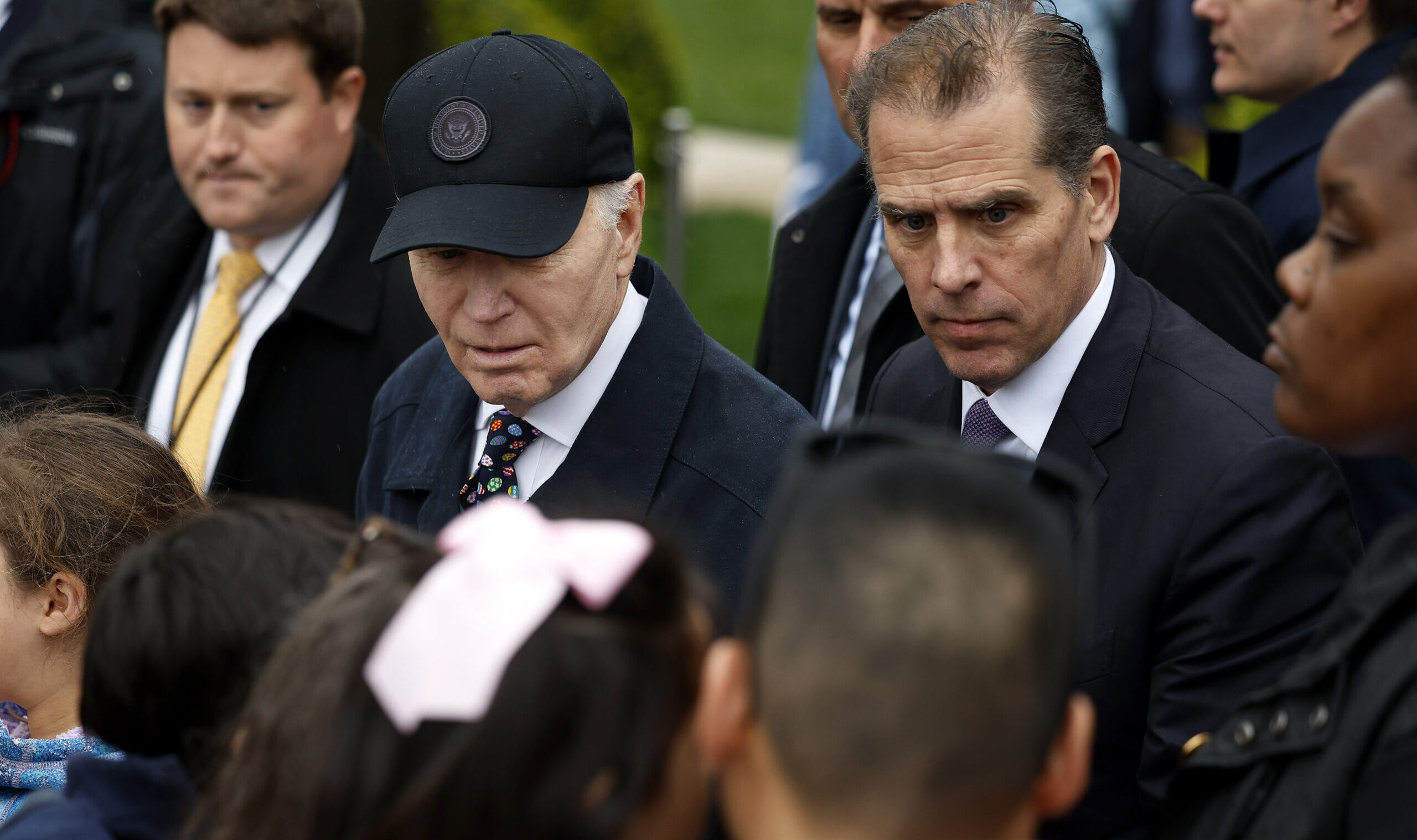
House Republicans released a little-noticed 291-page impeachment report that should have exploded over the Democratic National Convention like an October Surprise, but in the end fizzled like a wet July 4th sparkler. The facts are there, largely thanks to Hunter’s laptop, but the drive to impeach a lame-duck president seems to have missed its moment. The depth of the report and the impeachable offenses it delineates do add some interesting background as to why Joe Biden might have dropped out of the presidential race, however. It looks like he ducked a helluva punch.
The impeachment inquiry into President Joe Biden found he committed several “impeachable offenses,” according to a report released by the House Oversight, Judiciary, and Ways and Means Committees. Republicans have been investigating Biden for over two years, subpoenaing witnesses and riffling through documents pertaining to his family business. And of course, that laptop of Hunter’s.
The report shows that Biden participated in a conspiracy to monetize his office of public trust to enrich himself and his family. Among other aspects of this conspiracy, the Biden family and their business associates received tens of millions of dollars from foreign interests by leading those interests to believe they would provide them “access to and influence with the Vice President.” (Many of these transactions were detailed previously by The American Conservative.)
As vice president, Joe Biden attended dinners with his family’s foreign business partners and spoke to them by phone, often being placed on speakerphone by Hunter. For example, in 2014, Vice President Biden attended a dinner for Hunter Biden with Russian oligarch Yelena Baturina, whose husband was the former mayor of Moscow. Following the dinner, Baturina wired $3.5 million to Rosemont Seneca Thornton, a front company created by Hunter. Then, months later, as Hunter and his business associates continued to solicit more money from Baturina, Vice President Biden participated in a phone call where he admonished Baturina, “You be good to my boy.”
In April 2014, a Kazakh oligarch wired $142,300—the exact price of Hunter Biden’s sports car according to the report—to a bank account used by Hunter. Biden and his business associates leveraged the vice president’s political power to obtain millions of dollars from a corrupt Romanian businessman. The report is chock full of such specific examples.
Several witnesses testified that Hunter Biden involved his father in business dealings with Romanian, Chinese, Kazakhstani, and Ukrainian companies, resulting in $27 million flowing to the Biden family. For example, around 2014, Hunter explored a joint venture with Chinese businessman Henry Zhao and his company, Harvest Fund Management, “a $300 billion Chinese financial services company closely connected to the Chinese Communist Party.”
When it appeared the deal was not going through, Hunter called his father for assistance. Similarly, while Hunter served on the board of directors of the Ukrainian energy company Burisma from 2014 to 2019, he utilized his father’s position to relieve pressure the company was under from a government investigation. In doing so, Biden changed U.S. policy in order to withhold a $1 billion U.S. loan guarantee until Ukraine stopped the investigation into the company affiliated with Hunter Biden.
After leaving office, Joe Biden and his family continued their financial relationships with corrupt Chinese businessmen who would send the Bidens millions of dollars. Some of the money was laundered through one of Hunter’s front companies and returned “clean” in part to Chinese entities in the U.S.
The Biden family “leveraged Joe’s positions of public trust” to obtain over $8 million in loans from Democratic benefactors. Millions of dollars in loans have not been repaid and the paperwork supporting many of the loans does not exist.
Biden knowingly participated in this conspiracy. It is, per the report, “inconceivable” Biden did not understand he was enriching his family by abusing his office.
The evidence also establishes the Biden family went to “great lengths” to conceal the conspiracy. Foreign money was transmitted to the Bidens through complicated financial transactions. The Biden family laundered funds through intermediate entities including Joe’s brother Jim and broke up large transactions into numerous smaller transactions. “Substantial efforts were made to hide Biden’s involvement in his family’s business activities,” the report stated. While Jim Biden claimed he gave this money to Joe Biden to repay personal loans, Jim did not provide any evidence to support this claim.
The report concluded,
President Biden’s participation in this conspiracy to enrich his family constitutes impeachable conduct. By monetizing the Vice Presidency for his family’s benefit, he abused his office of public trust, placing the welfare of his family ahead of the welfare of the United States. He also put foreign interests ahead of the interests of the American people… Joe Biden conspired to commit influence peddling and grift. In doing so, he abused his office and, by repeatedly lying about his abuse of office, has defrauded the United States to enrich his family. Not one of these transactions would have occurred, but for Joe Biden’s official position in the United States government. This pattern of conduct ensured his family—who provided no legitimate services—lived a lavish lifestyle. The evidence uncovered in the Committees’ impeachment inquiry reflects a family selling the ‘Biden brand’ around the world with President Biden—the ‘big guy’—swooping in to seal the deal on speaker phones or in private dinners.
The House report also cites Joe for illegally retaining classified documents at his home and other locations and states under Biden’s presidential tenure, the FBI and the Department of Justice afforded “special treatment” to Hunter Biden regarding his criminal investigations. The FBI and DOJ allegedly “slow-walked” the investigation, interfered with routine investigative procedures and allowed the statute of limitations to expire on the most serious felony charges to benefit Hunter. The White House refuted the allegations, and called the report a “failed stunt.”
This was all supposed to be a bombshell, dropping on the first day of the Democratic National Convention. The problem was it was no longer Joe Biden’s convention—he had been removed from running for president via a coup within the Democratic party, leaving the report to fall on deaf ears. But before one gets too cynical over the timing of this report, remember the circumstances surrounding the initial report on Hunter Biden’s laptop, the contents of which formed the backbone of these conclusions.
In Hunter’s case the laptop emails were buried by the establishment media, thanks to a cabal of security apparatus officials and media figures working for the benefit of Joe Biden and the Democratic Party since 2016, a group whose activities peaked in 2020.
Subscribe Today
Get daily emails in your inbox
As the New York Post broke the story that a laptop full of Hunter Biden’s files contained potential evidence of Joe Biden’s quid-pro-quo activities just ahead of the presidential election, more than 50 former senior intelligence officials almost immediately produced and signed a letter saying the emails “have all the classic earmarks of a Russian information operation.” The signers claimed to be “deeply suspicious the Russian government played a significant role in this case. If we are right this is Russia trying to influence how Americans vote in this election, and we believe strongly that Americans need to be aware of this.”
The letter was brilliant—evil, but brilliant. It played off the prejudice, dating to 2016, that the Russians interfered with American elections. In fact, most of the signatories—James Clapper and John Brennan among them—had played key roles in manipulating public opinion around the DNC server hack and, later, the Russiagate hoax. The establishment meme quickly became “the laptop is fake.”
The report released by the House Oversight, Judiciary, and Ways and Means Committees shows once and for all that it was no fake, and, had the information on the laptop been looked into when it was first released on the cusp of the 2020 election, those election results could have been very different. As it is, Joe Biden and his son Hunter cheated the hangman. Joe is a lame duck, Hunter a forgotten tragicomic vaudeville act. The report, which should have knocked Washington on its ear, instead will fade into obscurity. Joe Biden not only cheated on his country and made millions; he got away with it all. Not a bad trade for giving up on an election he was sure to lose anyway.
Blinken’s Inept Policies Make a Bad Situation in Venezuela Worse
Foreign Affairs
Washington fumbles defending U.S. interests in the Americas and declines to use realpolitik in dealing with Venezuelan dictator Maduro.
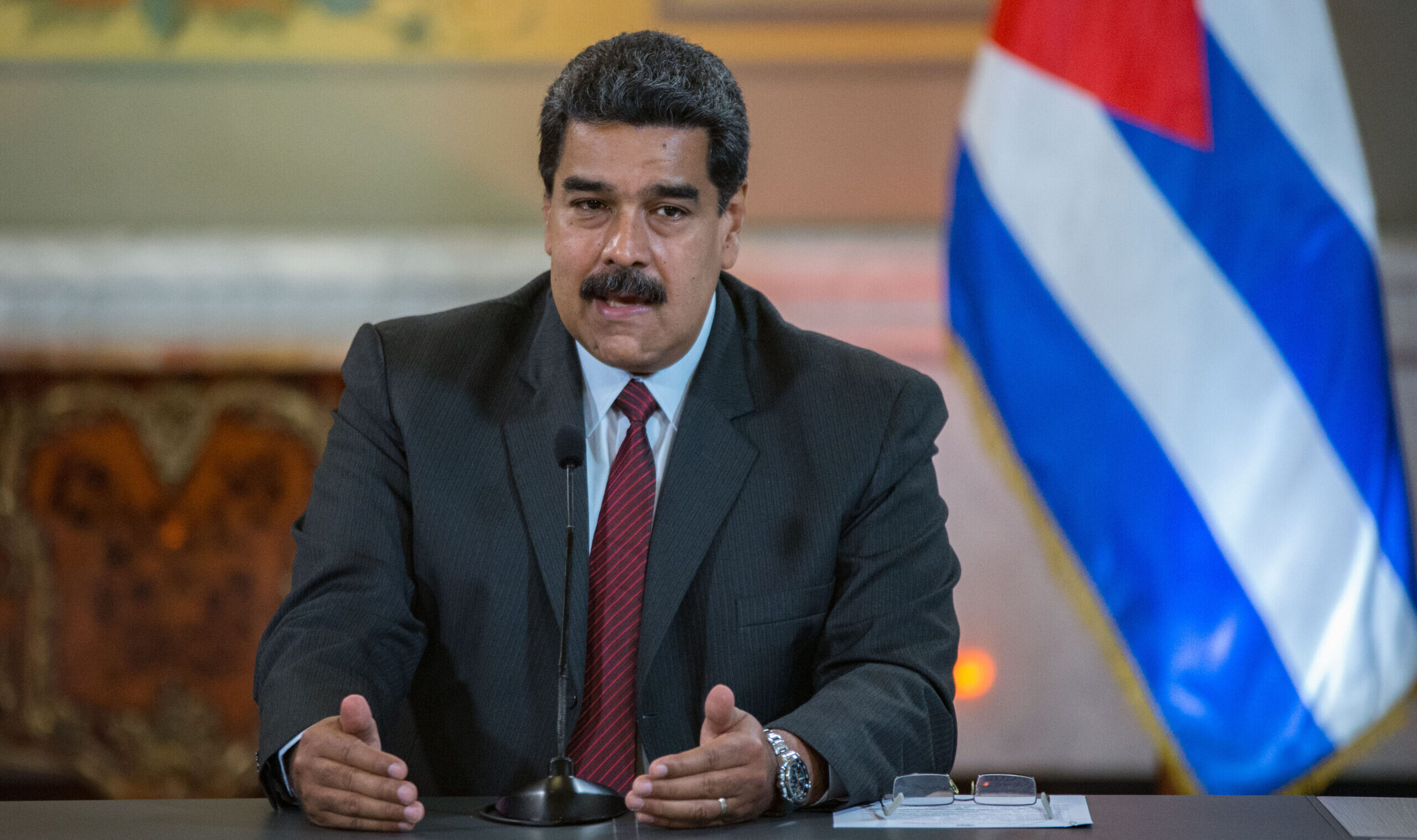
Writing 40 years ago as a student at Harvard, Tony Blinken provided a telling insight on his perspective in dealing with Marxist strongmen in Latin America who steal elections. Pondering dictator Daniel Ortega and the Sandinistas in Nicaragua in 1983, the future secretary of state recommended,
The wisest course would be for Washington to try a little experiment. The Administration should withdraw any support it is supplying to the counterrevolutionary groups and pressure them to cease their activities. The government should then restore aid to the Sandinistas and initiate negotiations aimed at easing tensions between the U.S. and Nicaragua. For their part, the Sandinistas would have to liberalize their rule and schedule elections for the near future.
None of us should be too harshly judged on what we wrote, decades ago, as undergraduates—but I am betting Blinken would stand by that same recommendation today.
Blinken’s naïve “little experiment” idea goes a long way in explaining his reluctance today to exercise U.S. power in the hemisphere, preferring instead to pass to Mexico and Brazil the leading role in dealing with Venezuelan dictator Nicolas Maduro’s stolen election mess.
Unpacking U.S. dealings with dictator Maduro reveals how the Biden administration’s pursuit of misplaced ideological priorities, linked to climate change and open borders, has foolishly supplanted realist American diplomacy.
In fairness to Blinken and company, responding to Venezuelan Marxist strongmen, first Hugo Chavez and now Nicolas Maduro, has been a constant headache for Washington and our hemispheric allies for the past quarter century.
Venezuelan Chavismo has provided crucial assistance to enemy regimes in Cuba and Nicaragua, while opening the hemispheric door to Iran, Russia, China, and other hostile actors.
The right approach for Washington to these challenges was and continues to be steady realpolitik. The State Department needs to pursue policies that prioritize defending traditional U.S. hemispheric interests, our values, our friends, and our national borders. It is true that our hemispheric allies put great stock in a multilateral approach, but they also highly value decisive U.S. leadership.
Instead, the Biden administration is playing out versions of Blinken’s “little experiments” that discard U.S. geopolitical leadership in the Americas, while prioritizing radical concepts on climate change and open-border migration. This foreign policy mishmash is clearly visible in Washington’s confused and ineffectual strategy in dealing with Maduro.
President Biden foolishly ended the Trump-imposed economic sanctions on the Venezuelan petroleum industry. Initiated in 2019, U.S. sanctions were leverage for the international campaign to recognize Juan Guaidó as Venezuelan president, an effort that brought together 60 governments, including even the Trump-skeptical European Union. It was a legitimate plan to counter Chavismo in the Americas.
Although economic sanctions were successful in squeezing the regime, Biden’s decision to end them in 2022 was a unilateral concession to Maduro for his promise to play fair in the next round of presidential voting. Given the Venezuelan strongman’s open theft of the July elections, the Biden team, today, clearly appears to have been hoodwinked yet again.
And indeed, they were, but there was more to the story, and it involved the Biden administration’s climate change quixotism. Biden ended sanctions, at least in part, because the White House also wanted to cooperate with Maduro to pump oil. Duping his green constituency at home, Biden cynically calculated he could expand petroleum exports from Maduro’s Venezuela, while continuing to oppose U.S. domestic production. Presumably, the deal was also supposed to curry favor with the dictator.
The Biden team then vetoed an international loan to assist Venezuela’s neighbor, Guyana, to develop its own massive offshore oil reserves. That decision appears to have involved both climate change genuflection as well as an element of kowtowing to Caracas. Venezuela aggressively covets its neighbor’s offshore oil deposits as well as Guyana’s national territory.
Where was the U.S. national interest in all this? When pressed, my contacts inside the State Department privately confirmed that this phony climate change diplomacy was in fact as cynical and confused as it appeared.
Then there is the hemispheric migration chaos, Biden’s signature issue. Some 8 million Venezuelans (out of a population around 29 million) have already fled the disaster and repression of the Maduro government. Most are in Latin America, but more than 600,000 are now in the U.S., with millions more calculating their chances of picking up and leaving Venezuela.
This diaspora is catastrophic for Venezuela’s future, and it plays right into what Maduro wants. Prudent U.S. policy should work to keep disgruntled Venezuelans in their homeland. The vast majority who flee are opportunity and economic migrants, not classic political dissidents directly victimized by regime reprisals.
Some on the Biden team have reasonably expressed concerns about this looming new flood of migrants. Yet, typically, the Biden administration sends confused signals, saying the U.S. frontier is closed to illegal crossings, but—based on its actions—the real message is: come and we will let you in.
Not surprisingly, the Biden administration is throwing away another chance to deter massive illegal migration coming out of the region. Panama is asking for U.S. assistance in closing down the Darien Gap, the dangerous land route that enables vast numbers of Venezuelan migrants, along with other nationalities, to move through Colombia on their trek north.
Panama’s President Mulino needs Washington’s help to shut down this major pipeline of human trafficking and organized criminal activity. To help Mulino, the U.S. must apply diplomatic pressure on Bogotá to accept deportations, including third-country nationals, who leave Colombia crossing into Panama.
Washington hardball diplomacy vis-à-vis Bogotá would drastically slow the movement of Venezuelans, with many deciding to remain in Colombia or not even undertaking the perilous journey in the first place.
Yes, Colombia is already hosting some 3 million Venezuelans and is stretched. But facilitating new millions to make the dangerous illegal journey northward is not in the U.S. national interest; it is also a recipe for yet another chapter of human exploitation and tragedy that immigration romantics cannot whitewash. To assist Colombia, Washington could offer more financial assistance in maintaining and sheltering the next round of Venezuelans fleeing Maduro. Their geographic nearness to their homeland represents valuable pressure on the dictator.
But we already know that Secretaries Blinken and Mayorkas, for ideological reasons, reject such a strategy; they believe in an absolute right of unauthorized migrants to pick up and go, all the way to the United States. “Surge to our border” famously urged the candidate Joe Biden to the world.
If Kamala Harris is elected president in November, expect the Venezuelan illegal population in the United States to grow by many millions. Domestic political pressure on Maduro will drastically ease, and Venezuela, sadly, will permanently become the region’s next Cuba – a poverty-stricken country that produces vast numbers of migrants who work hard in the U.S. to send back remittances that allow a bankrupt communist regime to survive.
Highlighting administration unwillingness to use realpolitik, Secretary Blinken has bizarrely turned to Mexico and Brazil to undertake the needed “diplomatic pressure” to reverse Maduro’s stolen election.
These regimes—led by anti-Americanists AMLO in Mexico and Lula in Brazil—are fundamentally hostile to traditional U.S. involvement in the region. These leaders actually have more ideological sympathy for Maduro than for Biden. They really want Washington just to butt out.
They also doubtless see President Biden and Secretary Blinken as pliable, woke liberals whom they can mau-mau and guilt for historical reasons. And they are right.
Wise U.S. policy certainly does not need Mexico and Brazil. Even the international left acknowledges that Maduro and his henchmen have stolen the July elections. Everyone from the New York Times to the European Union recognizes the fact, yet AMLO and Lula—revealing their fundamental loyalties—have done little to nothing to condemn the results.
Lula even recommended that the Venezuelan courts, totally controlled by the caudillo Maduro, might clarify the election winner. Now, as of this writing, Lula’s “solution” is to call for new elections knowing full well that Maduro stole the results last time.
Blinken should return to past diplomacy through which Washington applies bilateral pressure, and the United States cooperates with its regional allies through the Organization of American States (OAS). It is often a slow and tedious approach that allows the U.S. to exercise vigorous leadership while also paying homage to the multilateralism that brings along most of our hemispheric allies. The OAS is a flawed partner, true, but then there is no such thing as perfection in diplomacy. Certainly, it is a better approach than relying on AMLO and Lula.
Subscribe Today
Get daily emails in your inbox
Finally, a word to those in our own ranks who may think Venezuela is simply not worth our effort. They are, respectfully, mistaken. The U.S. national interest is at stake in this crisis.
Modern America-First conservatives continue, rightly, to make reference to the Monroe Doctrine because geography matters in geopolitics. A direct consequence of Maduro’s tyranny is that illegal migration and criminal activity will continue to grow and strike at the U.S. heartland. Our global enemies will continue to use Maduro’s Venezuela to enter the region. Not to engage leaves Washington with nothing better than a hemispheric Maginot Line.
It is true that a wise United States does not go abroad in search of monsters to destroy; but we do undertake prudent steps to protect our borders and defend rule of law at home and in our immediate region, while checking nearby enemies who plot to undermine us.
Gallo’s Humor
Politics
One man links Trump, Cannes, and Charlie Manson.

The reviews were unanimous: “Metal”—“The hardest image of all time just dropped”—“That jacket is so damn nice.” On the last point, there was little debate; the jacket was, in fact, “so damn nice.”
The former president stuck out his thumb and smiled from ear to ear. The shaggy looking man to his left who few outside the fringes of cinema or politics could name wore a fitting grin. If nothing else, it was good to see Vincent again.
“Standing next to the greatest president the USA has ever produced,” wrote Vincent Gallo, the Palme d’Or-nominated filmmaker behind cult classics Buffalo 66 and The Brown Bunny. “How proud I am to be in this photo.”
Though some feigned shock in the comments below, most who have followed the arc of Gallo’s mercurial career were less surprised—the former mafia intern who played bandmate to Jean-Michel Basquiat and walked the runway for fashion’s best—Saint Laurent—has long been an eccentric but somewhat-celebrated fixture of the new American right.
Gallo included four more images in his Tuesday post to Instagram, including one that featured a young, smiling Gallo rocking a peace sign next to then-President Ronald Reagan. Gallo also included an image of the Fox News host Greg Gutfeld ripping a heater. “Thanks to Gutfeld for making it happen,” read part of the caption.
The self-described “Donald Trump of Cannes” also included an image of his long-rumored girlfriend, Afton “Star” Burton, the onetime fiancee of that Charles Manson. Gallo allegedly met Burton, who donned a Trump hat at the TPUSA event, when the former (who looks strikingly similar to Manson) was prepping for a biopic on the Family that never got off the ground. The rest, as they say, is history.
Gallo and Star cut odd but welcome figures at the Turning Point USA event. If MAGA is anything, it’s the wildest political movement in the history of American politics.
It wasn’t the first time Gallo had appeared at a Republican event. In 2014, he was spotted with the Bush twins taking in New York City fashion week. A month later he spoke to the Women’s National Republican Club in New York City.
“The Republican Party needs hipsters,” the shaggy-haired filmmaker told a room full of waspy Manhattanites. “If it wants to broaden its base, it needs hipsters.”
Gallo isn’t the first punk to break free from the grasp of liberalism.
The former Mumford & Sons guitarist Winston Marshall and the American basement rocker Ariel Pink teamed up in early 2021 to parody the Hunter Biden laptop scandal after both men faced backlash for their rightward turn. Fans of the Smiths frontman Morrissey felt “betrayed” when they learned of the rocker’s nationalist beliefs.
And punk legend Joey Ramone once penned a song to his favorite TV anchor, Fox News host Maria Bartiromo: “I watch her every day, I watch her every night, she’s really out of sight, Maria Bartiromo, Maria Bartiromo,” crooned the late rocker.
For all of his controversies—and there have been many, many, controversies—it was still interesting to see Trump with Gallo if for no other reason than Gallo’s track record as one of the most unyielding independent filmmakers in the history of American cinema.
No one could’ve made Buffalo ’66 but Gallo. Battling the snow, battling Christina Ricci (in more ways than one), and battling himself, ’66 is revered to this day for its unrelenting look at the underbelly of the forgotten America that propelled Trump into the White House.
Gallo’s 1998 masterpiece tapped into the struggles of America’s white working class in a way Hollywood could never. Lonely, dysgenic, left to die in the blizzards of upstate New York, Gallo’s tour de force is some of the most unabashed and real filmmaking since John Cassavetes, the pioneer of American independent cinema, laid the groundwork years before.
The film was lightning in a bottle for Gallo, who was invited to screen it at the 1998 edition of Sundance Film Festival.
Writing for Film Comment, Gavin Smith noted that ’66 was “arguably the festival’s best film” and that it had “naturally gone home prizeless.” Controversy found Gallo at the judge’s table where he feuded with the Taxi Driver scripthand Paul Schrader after a feisty Q&A session where Gallo did not hold back his opinions on the unfolding Clinton-Lewinsky scandal.
“Schrader was so offended by my comments at the Q&A that he walked into the voting and said, ‘Under no circumstance will Vincent Gallo win any prizes tonight,’” said Gallo in response to the charade.
Subscribe Today
Get daily emails in your inbox
But another witness suggested Gallo had been “his own worst enemy” throughout the festival. A raving madman, unrelenting to the core, a flagrant and unforgiving ball of dizzying energy. Sound familiar?
“I like Donald Trump a lot and am extremely proud he is the American President,” Gallo wrote in a 2018 piece published by the fashion magazine Another Man. “I’m sorry if that offends you.”
Standing next to the party bearer all these years later, Gallo’s uncompromising support for the Republican Party finally paid itself forward with an image for the ages.
European Allies Are Doing America’s Dirty Jobs
Foreign Affairs
What is happening in Europe is coming to America.
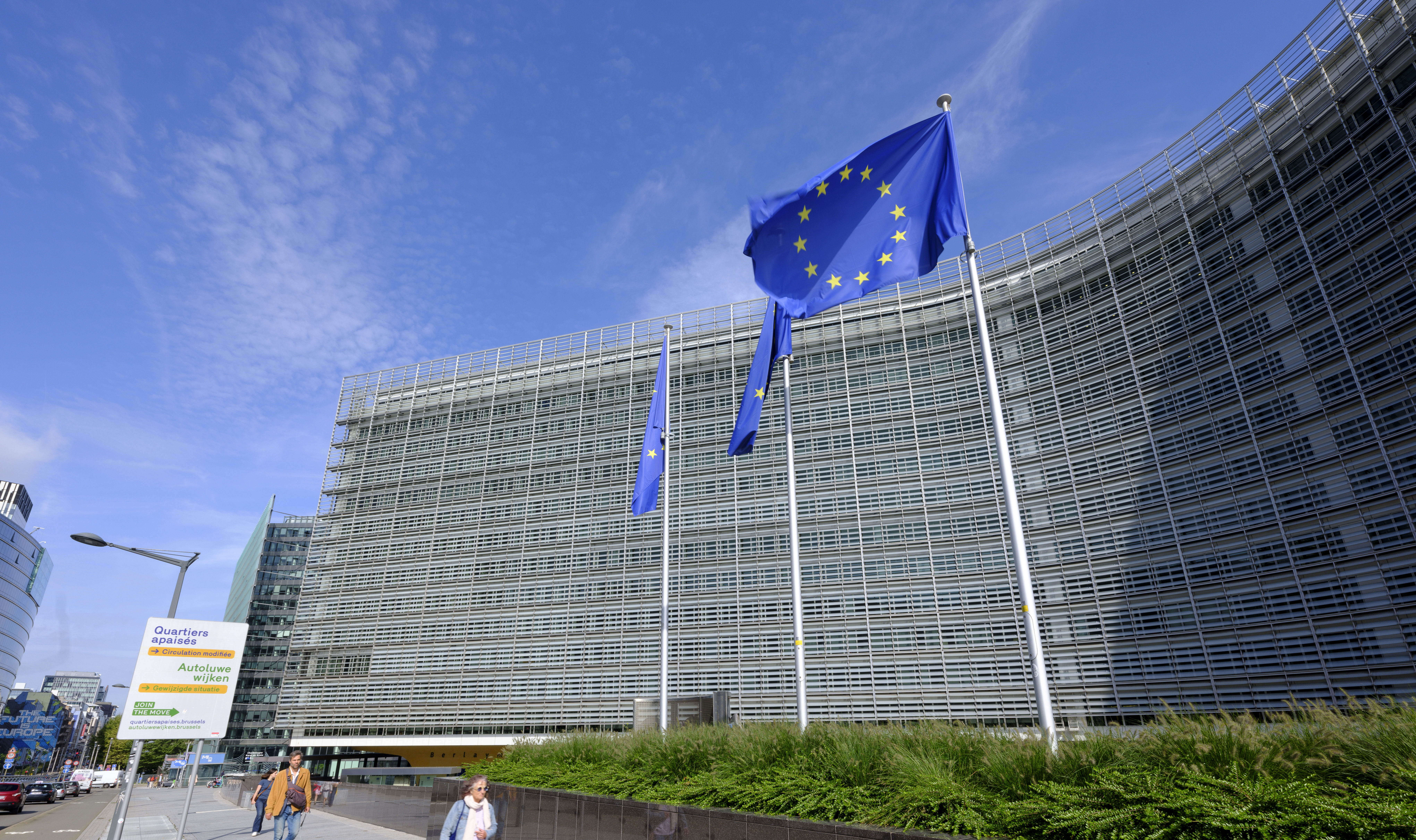
One of my pet peeves is to observe and chronicle how the 200-year idea of “liberal democracy” is disappearing before our very eyes due to the various new social conditions arising from technological innovations. I have written about it several times, but we have added one more data point to the idea that “free speech” as a concept is functionally dead or dying in the Euro-Atlantic. The founder of Telegram, Pavel Durov, was arrested in France on trumped-up charges that his platform “facilitated” human trafficking and pedophilic activity.
I say “trumped-up” because we have seen previous instances of actual sexual grooming and other such criminal deviance on social media platforms before (and even currently), but none of their founders have been arrested. No, the real reason is that Telegram, like X, or previously RarBG, or Pirate Bay, is committed to an old-school, mid-’90s throwback idea of zero censorship and total freedom of speech—a callback to a time when the internet was imagined to be the ultimate high-tech frontier of Utopia. That dream is dead: Durov refused the Europeans’ demands to crack his app, and is now facing the consequences.
Tucker Carlson conducted an interview with Durov a while back, and tweeted it out again following the arrest.
Pavel Durov left Russia when the government tried to control his social media company, Telegram. But in the end, it wasn’t Putin who arrested him for allowing the public to exercise free speech. It was a western country, a Biden administration ally and enthusiastic NATO member, that locked him away. Pavel Durov sits in a French jail tonight, a living warning to any platform owner who refuses to censor the truth at the behest of governments and intel agencies. Darkness is descending fast on the formerly free world.
Carlson would know. His own life is now on the line: consider that the Department of Justice has begun a broad criminal investigation into Americans who have worked with Russia’s state television networks. This is an easy way to tamp down on any dissenting voices, such as those of Carlson or Elon Musk; if carried out, the effect would be chilling. That’s the aim. The same goes for the anti-X crusade in Brazil and Europe. X is ostensibly the only platform to provide zero censorship, and thus alternative viewpoints. The Telegram arrest is just a practice run.
Consider two questions.
First, if, as the online saying goes, “America innovates, China replicates, and Europe regulates,” then what explains one side of the American political spectrum imitating European-style repression on innovation and freedom of speech? And, second, if there are people who are megarich, worth more than the annual GDP of mid-sized states, and they see huge international institutions trying to harm them, then what’s stopping them from banding together to oppose the very idea of international institutions—in short, from bringing back feudalism?
The second question is more relevant, given that, as David Sacks said, “Using allied countries to circumvent First Amendment protections is the new Rendition.”
The answers might soon look less than hypothetical. Free speech has never been the historical norm of human governmental organization. Even John Milton’s career took an unfortunate turn after writing Areopagitica, when he became the lead censor for Oliver Cromwell. Every single technological innovation that leads to freedom of expression inevitably leads to more repression and political-theological conflict. The printing press and the wars of the Reformation led to a reactionary backlash. The industrial revolution and telegraphs and rail lines led to the age of power imbalance and then imperialism. Social media and the Arab Spring led to, well, what everyone can see in the Middle East.
Subscribe Today
Get daily emails in your inbox
In short, the idea that free speech can remain neutral, without power behind it, is fallacious; the power will inevitably find enemies. There’s no balance in the world unless provided by a great power. Might is still right. Europe and America are now not even nominally defending free speech and dissent against concentrated power.
Which brings us back to the next hypothetical. If there are phenomenally rich men in the West, who could quite literally buy half of some continents and create armies if they wished, what is stopping them from banding together to bring about neofeudalism? Or simply toppling some governments and taking over? What might the backlash to the backlash look like?
The answer will almost certainly be not very nice. If the cycle is from the tech revolution to a dark-age crackdown to global theological conflict to a new social and security architecture, we are perhaps at the second stage. And whatever it is that is happening in Europe is perhaps coming to America sooner than we’d like to think.
PDO-protected cheeses rampant with diverse bacteria
Food
The European Union’s Product Designation of Origin (PDO) scheme aims to protect the heritage of certain foods by regulating the method used to produce them. Some of the most iconic examples are champagne and Prosciutto di Parma.
Cheese has many PDOs, from Parmigiano Reggiano to Comté. Europe has a rich history of unique cheeses and these products must be produced, processed and prepared in the specific region in which they originate. France alone has 51 dairy products carrying the PDO seal.
All of these dairy products are influenced – in texture, in taste, and in rind formation – by bacteria, yeasts and moulds introduced by both the sources of milk used, and the fermentation process. These microbes will go on to enrich the intestinal microbiota of consumers of said cheeses.
Because of the radical regional diversity in PDO-protected cheeses, the microbiota of many of these dairy products is immensely varied. A new study published in the journal ISME Communications analysed more than 2000 microbiotas from PDO-protected French cheeses, collected from samples from 386 farmers and cheese producers across France and finding an abundance of diverse bacteria.
How varied are the microbiotas of PDO-protected cheeses?
The study analysed 2,702 rinds and cores of 44 French PDO-protected cheeses, along with detailed information about their production conditions in 2017.
The researchers found an extraordinarily diverse range of bacterial species, with 820 found in the cheese, and 1,230 bacterial species in the cheeses’ milk sources.
The 10 most dominant bacterial species found were well-documented cheese colonisers. However, these species made up less than 50% of the cheese rind’s bacterial community, and less than 75% of the cheese core (except in the case of PLCF, or lactic bloomy rind, cheeses).
Some cheeses had more diversity than others. The most bacterially diverse cheese rind families were the soft bloomy rind cheeses, soft washed rind, hard cooked cheese, and uncooked pressed/semihard cheese. The cheese cores with the highest bacterial richness were soft washed rind and soft bloomy rind.

The bacterial and fungal population of the milk sources was more diverse, with less than 40% made up of the 12 dominant fungal and bacterial species.
Analysing the bacterial species, researchers found there was no core microbial species across the cheeses analysed (the threshold for this being that it must make up more than 0.1% of microbial species in a cheese and appear in 90-100% of the samples).
How does regional variation impact these microbiotas?
The concept of ‘terroir’, originally coined for wine, takes into account a cheese’s local ecological drivers, including the climate, soil and rainfall of its area of origin, and human activities such as processing.
The study hypothesised that, because PDOs are, by their very nature, specific to regions, and have highly diverse conditions, or ‘terroirs’, they are far more likely to have microbial diversity Whether ‘terroir’ is a relevant category in cheese has been a major point of contention in the scientific community, but the study set out to prove – or disprove – its importance.

The study found that the key driver of the microbiodiversity found in the cheeses were the milk species. However, the next most prominent were the region from which the cheese originated, and the topography of its origin.
At a farm level, the key variables were dairy breed, bedding type, grassland type and udder hygiene practices (for example, the lack of pre-milking udder cleaning in goats was a contributor). Bacterial communities were more affected by these factors than fungal communities.
PDO was found to be a significant differentiator of microbial differences. It explained 61.9% of variance for richness and 60.2% of variance for beta diversity for bacteria in the cheese core. In the rind, it explained 63.5% of variance for richness. Other key factor in its variability were the technological family used to make the cheese, and the production methods. PDO cheeses originating from different regions but belonging to the same cheese family do share some microbiological types.
Sourced From: ISME Communications
‘A comprehensive, large-scale analysis of “terroir” cheese and milk microbiota reveals profiles strongly shaped by both geographical and human factors’
Published on: 11 July 2024
Doi: https://doi.org/10.1093/ismeco/ycae095
Authors: F. Irlinger, M. Mariadassou, E. Dugat-Bony, O. Rué, C. Neuvéglise, P. Renault, E. Rifa, S. Theil, V. Loux, C. Cruaud, F. Gavory, V. Barbe, R. Lasbleiz, F. Gaucheron, C. Spelle, C. Delbès
Plant-based food sales can rise again, but the barriers are big
Food
Plant-based food sales are in a funk. Compounded by market oversaturation, the cost-of-living crisis and, some have even claimed, rising right-leaning rhetoric, the category’s sluggish performance pales in comparison to its glory days of the early 2020s and before.
On price, plant-based was edging towards parity with its animal-based cousins in 2022, but the post-pandemic cost-of-living hike threw any gains out of whack. This meant, when it came to cutting spend, most consumers culled plant-based – especially meat alternatives – from their shopping lists and diets.
Politically, plant-based is being viewed as a weapon, no less than in the US’s currently highly polarised political landscape. ‘Fake meat’, for example, has been used by the far-right as an example of the left’s threat to citizens’ rights to real meat, with some US politicians claiming plant-based companies are part of a “soy globalist” conspiracy bent on making meat illegal.
These, among other factors, threw the market into a deeper state of flux when in 2023 a series of high-profile meat alternative brands, including Meatless Farm and Beyond Meat, either fell or faced collapse. Add to this consumers’ increasing sensitivity around ultra-processed foods, and it’s the perfect plant-based storm.
Plant-based ‘meat’ sales have bombed by at least 13% over the last two years, recent Good Food Institute (GFI) stats show. Other data outlets show similar declines across western markets where the category had previously been in growth, such as +21% between 2020 and 2022 to €5.8bn, according to the GFI.

Is the plant-based market still relevant?
So, how can plant-based regain its strength? What areas of innovation should plant-based manufacturers be focusing on? And should the cost of plant-based to consumers be lowered?
The good news is the plant-based market remains relevant, especially for meat alternatives. The data varies, but between a third and half of consumers are trying to eat less meat in 2024, HarrisX figures show. While environmental organisations like Madre Brava are pushing retailers to work harder too, urging European supermarkets to adopt 60% plant-based protein targets.
Despite challenging times brands also remain optimistic, such as Redefine Meat, whose co-founder Eschar Ben-Shitrit told FoodNavigator the business was gearing up to be the world’s largest ‘meat’ company.
There are other pockets of hope too. In the UK, under the Plant Futures banner, retailers and manufacturers have joined forces with a view to kickstart the category into strong growth through a combined effort. The lost growth can be regained, says the organisation’s founder Indy Kaur.
“Brands are shifting their [sales] focus onto open omnivores rather than flexitarians and vegans as it’s a bigger dietary group,” she explains. “Open omnivores are meat eaters open to trying more plant-based food while reducing their meat consumption.” However, to build longevity, the category must appeal to meat eaters and “start to think about them more than ever”, she advises.
How plant-based can grow:
According to Plant Futures’ Indy Kaur and Plant-Based Food Alliance founder Marisa Heath, to show growth manufacturers must:
- Get taste right – to succeed, plant-based manufacturers must make their products appealing to meat eaters to a point they’ll remain in the category. Plant Futures’ Indy Kaur uses UK meat-free sausage brand Richmond as an example, because “it tastes and feels familiar to the original”.
- Brand presence needs strengthening because many consumers can’t recall which product they’ve tried and are therefore more reluctant to consume in the category again as they feel at risk of buying the same product again.
- Makers don’t extol the health credentials of plant-based enough. Many are fortified with nutritional ingredients, some are made with soy which has a vast history of beneficial properties, says Heath.
- Plant-based can have a positive impact on the environment, which Heath argues also isn’t highlighted enough.
Plant-based taste can be an issue
According to Kaur, two factors let the plant-based category down – taste and apathy. “During Covid there was a natural uplift in sales, people were trailing plant-based more, but it was impossible to keep hold of all those new consumers. They lapsed because their needs weren’t met,” she argues.
In fact, according to the GFI, 51% of consumers who tried plant-based meat were not interested in eating it again because of the taste.
“People have had poor taste experiences and don’t want to come back to the category, but worse is they often can’t remember what product they’ve tried and by which brand, so there’s a need to build brands retention.”
There’s also an argument that many plant-based meat alternatives are ultra-processed, which Kaur acknowledges, nodding to “some nutritional issues”. Yet, another sector trailblazer bringing the industry together is Plant-Based Food Alliance founder Marisa Heath, who dismisses this as a big issue.
While Heath acknowledges the category does contain processed products, “there are positive ingredients like soya, which has decades of health nutrition and science behind it and we should be making the benefits clear around this”.

The health virtues of plant-based
Soya was the category’s conversational mainstay for years, but has been somewhat relegated as food tech delivered many alternatives. “I think there’s an element of being a little too smart,” says Heath when asked if the category should go back to the basics of bean burgers and nut roasts. “But being smart comes with benefits like fortification for health, which plant-based is not expressing enough.”
When it comes to cost, Heath argues the inputs for plant-based manufacturers are higher than their non-vegan counterparts as the markets usually aren’t as established. However, Kaur believes cost is not a barrier to sales success.
“Vegans or flexitarians will talk about cost as an excuse [not to buy], but for omnivores it’s more about being satisfied; the barriers go well beyond price for these people,” she says, and highlights the success of the dairy milk alternative category, which costs more than cows milk, as a working example of price not being a barrier.
But both Kaur and Heath agree plant-based food manufacturers must focus more on taste to reverse the decline in sales. “We have to focus on getting the products right for meat eaters, because they are the ones who need convincing and retaining in the category,” says Kaur.
Yes, the category’s struggles have been universally acknowledged and the barriers to growth defined. However, those with a vested interest in the sector are focusing on the solutions and developing the plant-based category’s future.
Coffee cherry extract shows memory benefits in novel RCT
Food
Writing in the journal Nutrients, scientists from Auburn University and VDF FutureCeuticals report that the study provides “real-world evidence of efficacy” for VDF FutureCeuticals’ proprietary coffee cherry extract (CCE).
“We believe that this current study is a contributory step towards transforming the clinical trial landscape, especially for brain health supplements,” the researchers wrote. “The world is full of supplements with positive outcomes in laboratory settings that do not fulfill their promises when taken in the messiness of real life.
“We feel that these data serve to enrich the growing body of evidence that CCE may support and potentially enhance brain health and function in older adults. Given the burgeoning global interest in brain health supplementation, it is critical that more robust research efforts are devoted toward characterizing the nature and efficacy of these supplements.”
Coffee cherry
Coffee cherry is the outer layer of the coffee fruit (Coffea arabica). The extract is a rich source of polyphenols, while VDF FutureCeuticals’ proprietary extraction process decaffeinates the extract. The company produces the extract from several varieties of Coffea arabica plants, sourcing from plantations in India.
The ingredient’s potential brain health benefits have been reported previously, with data showing that it may boost levels of brain-derived neurotrophic factor (BDNF) and increase alertness. Other pre-clinical data supports a potential anti-inflammatory activity, according to background information in the new paper.
“Interestingly, all studies to date have been conducted in sterile, traditional laboratory environments, which by definition do not automatically lend themselves to real-world generalizability,” the researchers wrote. “Indeed, there has been recent discussion in the literature related to the deficiencies of traditional clinical models.
“Accordingly, we designed and conducted a first-of-its-kind remote clinical trial to assess both the acute and long-term effects of CCE. We leveraged a double-blind, randomized, placebo-controlled, two-arm design (i.e., placebo versus CCE). Participants were recruited from across the United States.”
Study details
The study included 323 people between the ages of 40 and 65. The “very diverse, generally healthy study population” were assigned to receive either a placebo or 200 mg per day of CCE for 28 days. Remote cognitive tests were performed at the start of the study (pre-supplementation, after one dose of the product to assess acute effects, and then weekly until the end of the trial).
The data showed that the single dose produced better results than placebo, with greater accuracy and fewer omissions during working memory and inhibitory control tasks.
Data over the course of the supplementation period showed that CCE outperformed placebo for accuracy, the researchers reported.
“Demonstrating real-world results that are consistent with, and expand, results obtained from previous laboratory-based studies provides more confidence that the effects of CCE on focus, attention, concentration and accuracy are not merely a product of a sterile, artificial environment, but are in fact real effects that can be experienced at home,” they concluded.
Source: Nutrients
2024, 16(14), 2348; doi: 10.3390/nu16142348
“Whole Coffee Cherry Extract Improves Working Memory and Response Inhibition: Acute and Longitudinal Results from a Remote, Randomized, Double-Blind, Placebo-Controlled Clinical Trial”
Authors: J.L. Robinson
Nespresso Bloom: The sweet taste of an environmentally sustainable business model
Food
The idea for Nespresso Bloom, which includes a raw honey and a coffee-infused honey syrup sourced from bees on some farms in Colombia from which the company buys beans, “stems from the company’s business model, which is ingrained in sustainability,” Nespresso North America CEO Alfonso Gonzales Loeschen told FoodNavigator-USA.
“Everything we do at Nespresso is to protect the future of coffee. And I think Nespresso Bloom reflects that perfectly because it encompasses sustainable farming practices” that not only improves biodiversity, quality and supply of the coffee, but it also increases farmers’ earning potential because it creates an alternative source of income that hopefully will encourage future generations to continue to farm and provide beans to Nespresso, Loeschen explained.
He added it also expands Nespresso’s market reach by bringing the brand beyond coffee and related accessories for the first time. It also meets consumer desire for alternative sweeteners and more responsibly sourced products and gives them an opportunity to learn about and support the transition to regenerative agriculture, Loeschen explained.
In this sense, investing in regenerative agriculture goes far beyond environmental sustainability to include basic business goals such as boosting sales and volumes, reinforcing the supply chain, expanding consumer engagement, elevating the brand and product selection through marketing and earned media, and more.
From coffee to honey: How Nespresso Bloom was made possible
Nespresso Bloom may be rooted in the company’s commitment to sustainability, but it would not be possible without the partnerships that Nespresso has forged as part of its AAA Sustainable Quality Program, said Loeschen.
He explained as part of Nespresso AAA Sustainable Quality Program, the company has worked directly with farmers for 20 years to improve the quality of their coffee, grow their income and protect the land.
For a select group of about 50 farmers in the Caldas-Antioquia region of Colombia beginning in 2020, this included participating in a pilot program in partnership with UBEES, which provided the farmers with nearly 800 beehives and monitoring technology.
“What we are doing together with UBEES is we are helping farmers learn the art of beekeeping. This helps to further their regenerative agriculture efforts because it promotes pollination … improves biodiversity and the quality of coffee beans,” he said.
The honey collected from these hives was used as the base for Nespresso Bloom, which was created through another partnership with parent-company Nestle’s R+D Accelerator in Lausanne, Switzerland. There, entrepreneurs use cutting-edge research and technology to better understand, measure and support the transition to regenerative agriculture through a consumer-centric approach.
The result of this multi-tiered collaboration was Nespresso Bloom, which Loeschen fondly called “the sweet side of espresso,” and which includes a raw Coffee Blossom Honey with a “delicate floral flavor” that can be used in beverages or recipes, such as on top of affogato, yogurt and more, and a Coffee Blossom Honey Syrup, that the company says “adds a refined coffee flavor with velvety, smooth, caramel and vanilla notes” to coffee-based beverages and other foods.
Limited distribution could scale with program
Given the small size of the pilot program currently, Nespresso Bloom will have limited availability in Nespresso Boutiques in New York City and San Francisco through Aug. 21, at which point they will be available nationwide on Nespresso.com while supplies last.
The limited rollout will allow Nespresso to gather consumer feedback before expanding the pilot and producing additional runs, said Loeschen.
“We are very confident that Nespresso Bloom will have a high consumer acceptance because of the nature of the products, its high quality” and emerging consumer interest in honey as an alternative sweetener for their coffee that they perceive as healthier than table sugar, he said.
As such, he said, he anticipates Nespresso will bring additional batches of Nespresso Bloom this year, and has “new innovations” in the work for the new line in the future.






